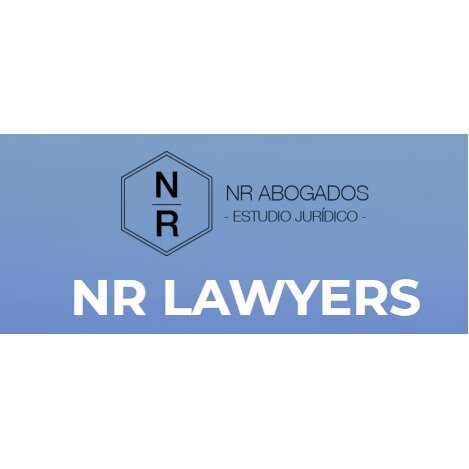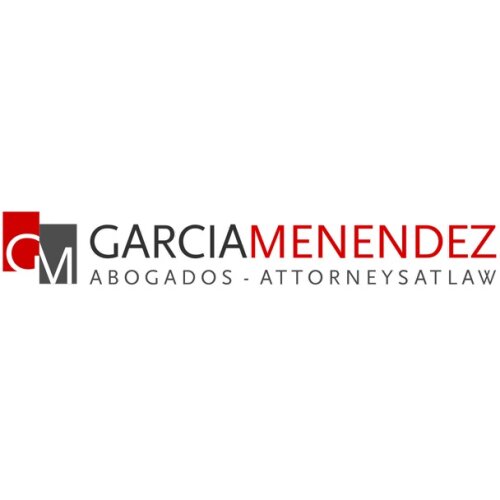Best Antitrust Litigation Lawyers in Argentina
Share your needs with us, get contacted by law firms.
Free. Takes 2 min.
Or refine your search by selecting a city:
List of the best lawyers in Argentina
About Antitrust Litigation Law in Argentina
Antitrust Litigation in Argentina focuses on regulating competition to ensure fair business practices and protect consumers from monopolies or anti-competitive conduct. The legal framework prevents companies from engaging in behaviors that might restrict competition, such as price fixing, abuse of dominant position, or unauthorized mergers. The main objective is to maintain a healthy competitive environment that encourages innovation, efficiency, and benefits for consumers.
Why You May Need a Lawyer
Antitrust matters can be complex and often require specialized legal guidance. You may need a lawyer if you are:
- A business accused of anti-competitive practices or cartel conduct
- A competitor alleging another business is abusing its market dominance
- Involved in mergers or acquisitions that could raise competition concerns
- A consumer or company harmed by illegal price manipulation or collusion
- Facing an investigation or enforcement action by Argentine authorities
- Seeking to understand compliance with local antitrust laws to avoid penalties
A qualified lawyer can help you navigate investigations, represent you in disputes, and ensure compliance with the relevant regulations.
Local Laws Overview
The Argentine Competition Law, known as Ley de Defensa de la Competencia (Law No. 27.442), is the primary statute governing antitrust regulation. This law sets out prohibited conduct such as cartels, abuse of dominant position, and anti-competitive mergers. Key elements of Argentine antitrust law include:
- Prohibition of agreements between companies which restrict or distort competition
- Sanctions for abuse of dominance, such as imposing unfair prices or exclusionary practices
- Merger control procedures requiring prior notification and approval for certain transactions
- Enforcement by the National Commission for the Defense of Competition (CNDC) and, in some instances, judicial authorities
- Penalties including fines and, in severe cases, orders to divest or restructure businesses
- Protection for whistleblowers and leniency programs for companies cooperating with investigations
Frequently Asked Questions
What behaviors are considered anti-competitive in Argentina?
Anti-competitive behaviors include price fixing, market sharing, bid rigging, abusing a dominant market position, and any agreements or actions that restrict competition or harm consumers.
Who enforces antitrust laws in Argentina?
The main enforcement agency is the National Commission for the Defense of Competition (CNDC), which investigates and sanctions companies that violate competition law.
Do all mergers require approval from the authorities?
Not all mergers require approval. Only transactions exceeding certain turnover thresholds or creating potential competition risks must be notified to and approved by the CNDC before closing.
What are the penalties for violating antitrust laws?
Penalties may include significant monetary fines, orders to break up or restructure businesses, invalidation of certain contracts, and restrictions on future business activities.
Can individuals as well as companies be held liable?
Yes, both companies and individuals involved in prohibited conduct can be held liable and subject to penalties under Argentine law.
Is there a leniency program available?
Yes, Argentine law provides for leniency and whistleblower protections. Companies or individuals who cooperate with investigations and disclose anti-competitive practices may receive reduced penalties.
How does the process for investigating antitrust violations work?
The CNDC initiates investigations based on complaints or its own research. This can involve document requests, interviews, and dawn raids, followed by a formal process where parties can present evidence and arguments.
Can decisions of the CNDC be appealed?
Yes, parties can appeal decisions of the CNDC before federal courts, which review administrative decisions and can overturn or modify sanctions imposed.
What defenses are available in antitrust proceedings?
Defenses can include proving lack of market power, efficiencies that benefit consumers, or lack of anti-competitive intent. Legal counsel can help develop effective defense strategies.
What should I do if I suspect a competitor is breaking antitrust laws?
Consult with a lawyer to assess the situation and, if appropriate, submit a complaint to the CNDC. Legal representation is valuable in preparing documents and following due process.
Additional Resources
If you need more information or support, consider reaching out to the following resources:
- Comisión Nacional de Defensa de la Competencia (CNDC) - The main government agency enforcing antitrust law in Argentina
- Ministry of Productive Development - Provides policy guidance and oversight
- Argentine Bar Association - Can refer you to qualified antitrust litigation lawyers
- Argentina's Federal Courts - Handle appeals and complex antitrust litigation
- Legal aid organizations and university legal clinics offering free or low-cost advice
Next Steps
If you believe you may be involved in or affected by an antitrust issue, take the following steps:
- Document any relevant information, including contracts, communications, and losses suffered
- Consult an experienced antitrust lawyer who understands Argentine law and procedure
- Review your legal options, whether defending against an investigation or pursuing a complaint
- Cooperate with authorities if under investigation, but only after seeking legal advice
- Ensure ongoing compliance by updating internal policies and staff training
- Stay informed about regulatory changes and enforcement trends in Argentina
Professional legal support is essential for navigating antitrust litigation. Early action strengthens your position, whether you are defending your business or asserting your rights.
Lawzana helps you find the best lawyers and law firms in Argentina through a curated and pre-screened list of qualified legal professionals. Our platform offers rankings and detailed profiles of attorneys and law firms, allowing you to compare based on practice areas, including Antitrust Litigation, experience, and client feedback.
Each profile includes a description of the firm's areas of practice, client reviews, team members and partners, year of establishment, spoken languages, office locations, contact information, social media presence, and any published articles or resources. Most firms on our platform speak English and are experienced in both local and international legal matters.
Get a quote from top-rated law firms in Argentina — quickly, securely, and without unnecessary hassle.
Disclaimer:
The information provided on this page is for general informational purposes only and does not constitute legal advice. While we strive to ensure the accuracy and relevance of the content, legal information may change over time, and interpretations of the law can vary. You should always consult with a qualified legal professional for advice specific to your situation.
We disclaim all liability for actions taken or not taken based on the content of this page. If you believe any information is incorrect or outdated, please contact us, and we will review and update it where appropriate.
Browse antitrust litigation law firms by city in Argentina
Refine your search by selecting a city.















